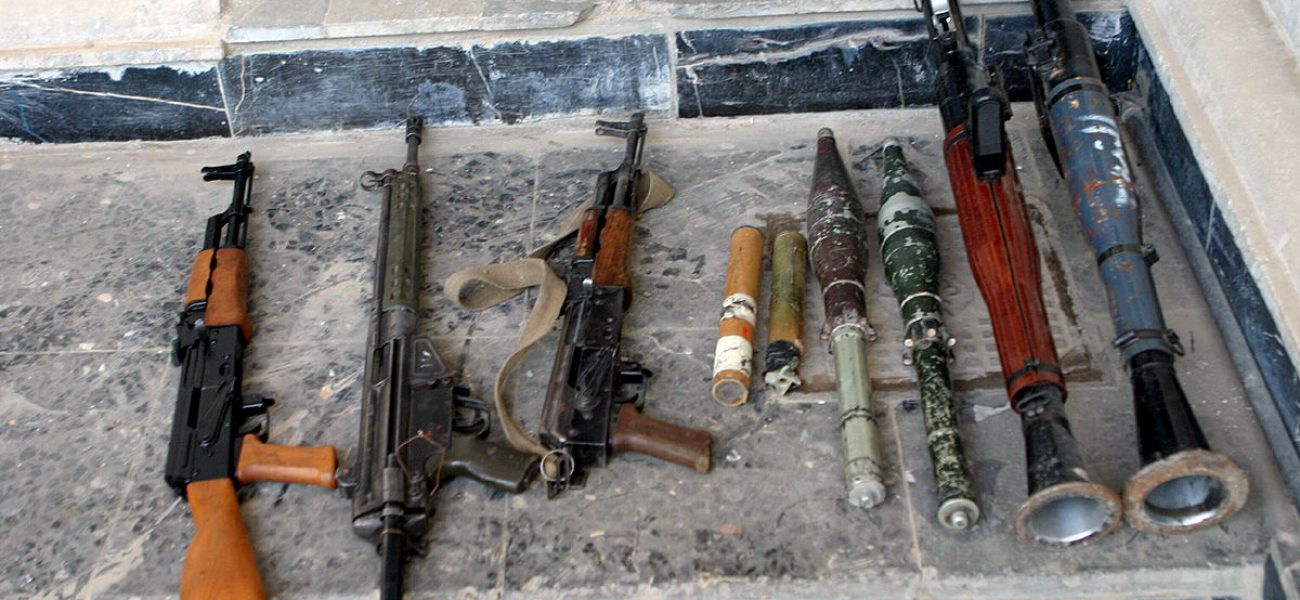The Control of Small Arms and Light Weapons Bill, 2021, an executive bill was introduced in the National Assembly upon resumption from its long recess on Tuesday, September 14. The bill seeks to establish a National Centre for the Control of the Proliferation of Small Arms and Light Weapons in Nigeria, to do the following:
- Control the proliferation of small arms and light weapons in Nigeria;
- Provide a framework for the coordination, implementation and monitoring of all efforts geared towards the control of small arms and light weapons in Nigeria; and
- Prevent, combat and eradicate the illicit trade in small arms and light weapons.
The National Centre for the Control of Small Arms and Light Weapons is to be domiciled in the Office of the National Security Adviser, which shall co-ordinate all security and enforcement agencies mentioned in the bill (including the police and the armed forces), for the purpose of enforcing its provisions. Among several functions, the National Centre will be responsible for implementing strategies, plans and policies for the eradication of small arms and light weapons, as well as supervise the implementation of same by relevant government bodies. It will also create and maintain a small arms and light weapons register and a national database; receive reports on firearms registration from the Nigeria Police and update the database with such information. It will also register, store and destroy firearms and ammunition received from security agencies, criminals and any person in illegal possession of such items. In addition, it will maintain a database of registered firearms dealers in Nigeria. Furthermore, the Centre will be responsible for updating and transmitting the national database to the United Nations (UN), the African Union (AU) and the Economic Community of West African States (ECOWAS). In its relations with these inter-governmental bodies, the National Centre will identify legitimate national defence and security needs and obtain the required exemptions from certain international protocols, in order to meet these needs.
The National Centre is further empowered to carry out public education and awareness at national, state and local levels, to involve Nigerians in the efforts to control the proliferation of small arms and light weapons. It may also make regulations and guidelines necessary for the implementation of the bill’s provisions.
The register of small arms and light weapons to be maintained by the National Centre is expected to record information such as the type, model, caliber and quality of the product (small arms and light weapons), content of their markings, names and addresses of previous and current owners of the arms/weapons and where possible, successive owners. Other details to be included are the date of registration and other information from each transaction involving a particular product. The records of the register shall also be kept in the custody of designated agencies. The National Centre shall also establish a National Small Arms Registry to be managed by an Arms Registrar, who will maintain and update all registers established under the bill. These registers shall also be transmitted to the secretariat of ECOWAS in accordance with its Convention.
On the possession of personal firearms, the bill provides that an individual can hold same only in accordance with a licence granted by the Inspector General of Police, under the guidelines specified by the President on the advice of the National Centre. A person whose application for a licence has been refused by the police and not by the President’s decision, may appeal to the President in writing through the National Centre and any decision stemming from the appeal shall be final. However, a permit or licence to hold firearms will not be granted to any individual who is under the age of 21, of unsound mind, unfit to possess a firearm due to defective eyesight, a person of intemperate habits or who has previously been convicted of an offence involving violence or threat of violence. The Inspector General of Police will be responsible to provide the National Centre with details of rejected licence applications, as well as revoked licences.
The bill stipulates the procedures for authorised sale and transfer of firearms and ammunition, as well as the manufacture of small arms and light weapons in Nigeria. The bill further creates offences associated with possession of firearms or ammunition without a licence and acts of violence with firearms, and stipulates penalties ranging from 2 years to 6 years imprisonment and a minimum fine option of N1,000,000. For offences under the Act for which no penalty is prescribed, the bill stipulates an imprisonment term of not less than one year and a fine of not less than N500,000 or both. The bill, if passed into law, will dissolve the Presidential Committee for the Control of Small Arms and Light Weapons. It will be recalled that bills seeking to establish a National Commission for the Control of Small Arms and Light Weapons have been introduced severally in the National Assembly, dating back to the 7th Assembly. This has been with the aim to domesticate the provisions of the ECOWAS Convention on Small Arms and Light Weapons, signed by Nigeria in 2006. However, even the most recent bill on the subject before the National Assembly raises administrative issues and questions of the independence of the National Centre it seeks to create.
To read more about the ECOWAS Convention and Nigeria’s past legislative attempts to address the proliferation of small arms, click here: https://bit.ly/3tWBH9X

